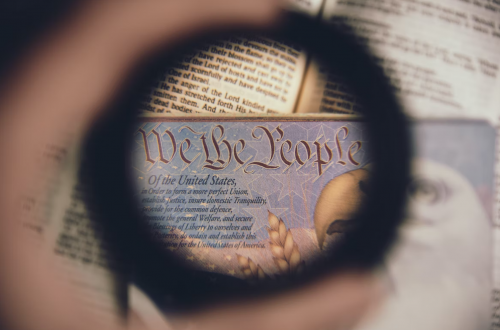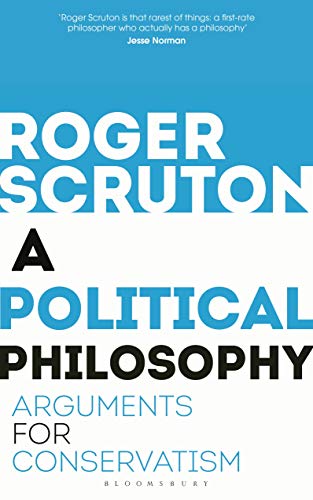 Karl Rove says his biggest mistake during the Bush years was the failure to refute the “Bush lied, people died” anti-war argument. He’s right. Even though the claim was spurious on its face, it picked up steam in the popular consciousness. After a few years, this catchy slogan became the majority view of the Iraq War. Rove argues that the failure to rebut this claim was the single biggest blunder of the Bush presidency.
Karl Rove says his biggest mistake during the Bush years was the failure to refute the “Bush lied, people died” anti-war argument. He’s right. Even though the claim was spurious on its face, it picked up steam in the popular consciousness. After a few years, this catchy slogan became the majority view of the Iraq War. Rove argues that the failure to rebut this claim was the single biggest blunder of the Bush presidency.
“We in the Bush White House discussed responding but decided not to relitigate the past. That was wrong and my mistake: I should have insisted to the president that this was a dagger aimed at his administration’s heart.”
I think good people can disagree over the Iraq War. That being said, there was a credible just-war argument to be made for the Iraq War (I ventured one here), and the Bush administration failed to make it. After Saddam Hussein’s regime was toppled and no WMD were found, the only people talking were the war’s critics, and it was their narrative that carried the day. The national discourse on this topic from 2004-2008 was extremely frustrating. Everyone was posturing for the next election, but almost no one was having a substantive discussion about the war.
There’s enough blame to go around for both political parties. Democrats shouldn’t have been repeating the specious “Bush lied, people died” mantra, and Republicans shouldn’t have given up their just-war high ground for the cynical political calculation “not to relitigate the past.” Both sides failed to speak straightforwardly. As a result, our national conversation was debased, and the public’s understanding of the war was severely distorted.
Things have gotten a great deal better in post-surge Iraq, and we don’t hear much protesting about that war anymore. It will be interesting to see in 20 or 30 years how the history books tell the story of the Iraq War. My hunch is that story will be much different than the one that has become fixed in the minds of most Americans.
Rove’s article appears in today’s Wall Street Journal, and you can read it here. Rove made a similar confession in his recent book Courage and Consequence: My Life as a Conservative in the Fight (p. 342). Also, see Douglas Feith’s 2008 essay on the Bush administration’s failure to defend the case for war against its critics.




11 Comments
Mike Bird
Denny, I believe in the legitimacy of the war in Afghanistan, but the Iraq war was the biggest mistake since Hitler decided to invade Russia! After 9/11 the whole world was on America’s side. Even French newspaper had headlines like, “Today We are All Americans”. NATO countries couldn’t volunteer fast enough to come to the fight in Afghanistan. Within one year of that, by going to Iraq without UN sanction, the America looked like an aggressive predatory nation. It gave Al Qaeda its propaganda victory and Iraq became a new base of operations (it wasn’t before). Mate, I spent a long time in military intelligence in the 90s, and I’m telling you, this was a mistake: strategically and morally!
Denny Burk
Thanks, Mike. Like I said, good people can disagree on this. I just think it’s significant that a senior official confesses that they made the strategic decision not to engage the debate.
I’m still not sure what else could have been done after 9-11. Sadam beligerantly refused to verify the destruction of his pre-1991 WMD stockpiles. After 11 years of failed diplomacy and Iraq’s failure to live up to the terms of it’s surrender in 1991, no credible president could tolerate the status quo. Too bad we didn’t have that debate back when it counted.
Nate
Part of the problem was that the debate could not take place because of the frenzy still surrounding 9-11. My biggest problem in post WWII American military protocol is that we no longer seek to win wars, we try to minimize the situations. We still have thousands of troops in Korea, and we refused to do what it would take to win in Vietnam.
We are told to size up the cost before we go to war. Well, 9 years into Afghanistan, we still are unwilling to win and the larger question is what would we win. When you attack a person or group and not a country you are in trouble to begin with. We have now been at “war” longer in these two than in our entire history.
The Post WWII police mindset is unhealthy. We need to win and bring the boys back home. As for engaging the debate, I would have rather they destroyed the enemy, won the war, and came home.
Derek
There’s a big difference between saying, “Bush lied, people died” and “the Iraq war was ill conceived and poorly executed”. I fall squarely into the latter camp, but disagree with those who say there was not basis with which to remove Saddam Hussein, who was guilty of numerous crimes against neighbors and his own people; systematically used torture to control his people; thumbed his nose at no less than 17 UN resolutions. There was plenty of basis to apply the just war doctrine, by any objective measure. But again, I think it was a bad idea and even worse an execution.
Alex Chediak
Denny et. al.,
As it turns out, I posted on this as well. I linked to the transcript of this 2008 60 Minutes interview with Saddam Hussein (when he was under house arrest prior to his execution). Hussein explains that he needed his enemies to think that he had WMD. I think he needed the “fear factor” to stay in power, since he got there via brutality and thuggery.
http://www.cbsnews.com/stories/2003/02/26/60II/main542151.shtml
Alex Chediak
The interview was conducted in 2003.
Jay
Denny, we can agree to disagree, but the fact that Rove has a prominent job today speaks volumes to the injustice of the system we have to operate under. I’m a 25 year veteran and went to Iraq 2x, once in 1991 and once in 2004. I do not think Iraq was a just war, but the fact that Rove is working today and I’m unemployed speaks volumes to the times we’re living in.
Jay
Correction: Desert Storm was a just war, Enduring Freedom was not.
Derek
Jay, with all due respect to you and to your service for our country, I don’t think anecdotes speak volumes because you can find anecdotes for pretty much any position. But it is true that veterans are having a difficult time getting employed and I think we have to look at the role of our media here as well, which has played no small role in devaluing and even denigrating the importance and nobility of your service. Also, can you 1) tell me why you don’t think the 2004 invasion qualifies under Just War? 2) Do most of your fellow veterans also feel that it was unjustified, from a just war perspective?
My own anecdotal findings, from talking to veterans who were there, has been quite surprising to me – I’ve dialogued in detail with at least five veterans and they believed that what they were doing was justified and had no problems with the mission. Their primary complaints were with the sometimes awful execution and the distorted perspective provided by the media. FWIW, I served in the Marines in the 90’s, so I trust these guys and what they told me. But again, I realize every vet will have a different perspective.
Jay
Derek,
I guess I think God in His providence has found a way to turn it into a Just War. However, our pretenses and motivations for going there in the first place did not pass muster under Just War criteria. I’ll try to put together some specifics in a separate post. I simply thought I’d say that I do believe that what guys like Rove and Rumsfeld meant for selfish gain, God has used and is using for great good, including the advance of the Gospel.
Derek
Jay,
I hear you. I’d like to hear your theory in more detail. I have extreme misgivings about the role that people like Bill Kristol and other neo-cons had. I think there were many reasons why Bush and his administration did what they did. It is also very clear that Bush senior had deep regrets about “not finishing the job” and I don’t think that can be completely separated from things. The WMD issue is the easiest thing to criticize (in hindsight), and I do think exaggerations were made, but it is also true that there was widespread international consensus among the world’s top intelligence agencies, that a) WMDs were a serious threat and that b) if Saddam Hussein was able to throw out inspectors without repercussions, that it would embolden other despots and terrorists. So even though I think 2004’s invasion was a mistake, I don’t think that any single group or cabinet members or anyone outside of the President, played a totally decisive factor in the decision. I would also be cautious about speculating on people’s motives here. Rumsfeld had a lot of very defined beliefs about the ME and about how war should be conducted; I don’t believe that his motives were corrupt, I just think they were sometimes naive, sometimes wrong and sometimes not executed properly.